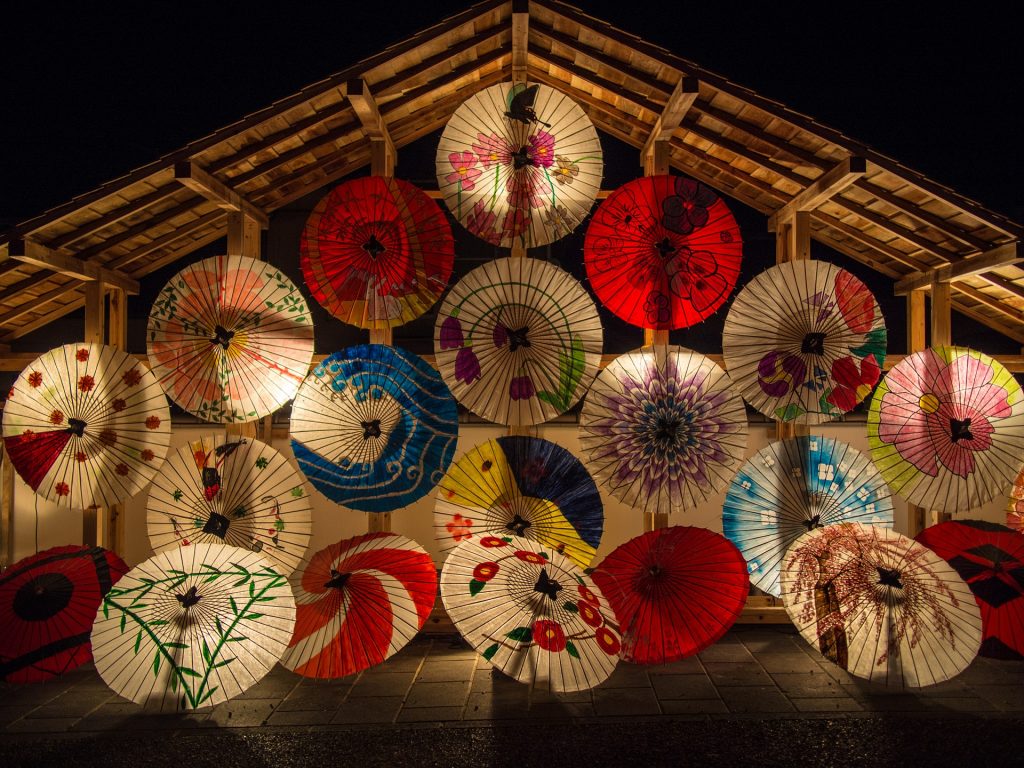What’s happening in Japan in December? Posted by keiko on Dec 25, 2017 in Culture, Grammar
❝To have another language is to possess a second soul.❞
‒Charlemagne
Merry Christmas everyone!
Here in Pacific Northwest, we actually had some snow starting yesterday morning for the first time this year. It was perfect timing to have snow falling as it made our Christmas into “White Christmas”. Snow is melting now, and kids are a bit disappointed as it wasn’t quite enough to enjoy sledding, but we are happy to have even a little bit of a snow for Christmas. How is the weather where you live?
December is the last month of the year, and with Christmas and New Years Eve at the end of the month, things are pretty hectic. People are busy getting ready for the New Year. In Japan, there are some traditional things that people do especially towards the end of December. I would like to introduce you to some of them here today.
Shigoto Osame (しごとおさめ、仕事納め)
Last day of work for the year
In Japan, most of the government offices are closed from 12/29 through 1/3 typically. Therefore, the last day of work is typically, the December 28th for the year. People often refer this day as “Shigoto Osame”, where Shigoto means “work”, and Osame means “finishing up, or end”.
Since we have word for “the last day of work”, you guessed it right, where we also have a word for “the first day of work (after a new year starts)” , which is called “Shigoto Hajime”, again Shigoto means “work”, and Hajime means “beginning or start”, that typically is the first week of January.
O-so-ji (おおそうじ、大掃除)
End of year cleaning
When I was growing up in Japan, my mother will start cleaning the entire house starting the mid December. Many families in Japan do this as a tradition, similar to “Spring Cleaning” here in U.S. I personally prefer cleaning in Spring as the weather is much warmer! おおそうじ、大掃除 is also called as “Susu harai (すすはらい、すす払い)”
Toshi no ichi(としのいち、年の市、歳の市)
Sale event or Market (End of year clearance, or to sell New Year items)
Toshi no ichi is a big sale event that happens at the end of the year in Japan. Similar to Thanksgiving sale in U.S., things are sold with big discounts. They also sell many items for New Years, such as decoration items called “Shime kazari(しめかざり、しめ飾り)”, and foods, or ingredients for our New Year’s dish called “Osechi Ryori (おせちりょうり、おせち料理)”.
O-misoka(おおみそか、大晦日)
New Year’s Eve
New Year’s Eve is very special in Japan. We finish all house cleaning by then, and get ready for New Year. Before we end that year, we typically eat “Toshikoshi soba (としこしそば、年越し蕎麦)”, which means “year crossing noodles”. The reason why we eat this type of noodle on the last day of the year is pretty interesting as this cannot be just any type of noodles, but Soba. Soba is easily cut in pieces, which signifies that we want to let go all the negative and unfortunate events that happened to us and our family for the year.
Hope you got to learn a bit of Japanese cultures as to what’s happening in Japan towards the end of December!

Build vocabulary, practice pronunciation, and more with Transparent Language Online. Available anytime, anywhere, on any device.




